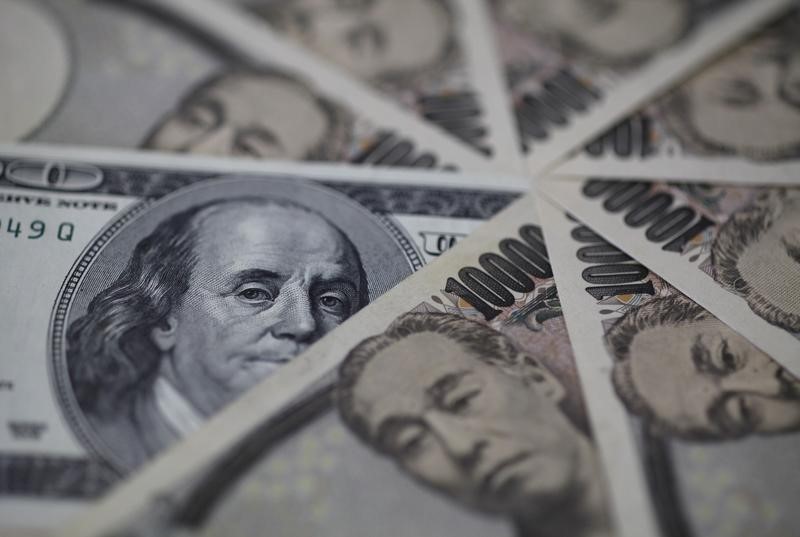Investing.com – The dollar remained under pressure against a basket of major currencies as mixed economic data offset easing trade war fears.
The U.S. dollar index, which measures the greenback’s strength against a trade-weighted basket of six major currencies, fell 0.16% to 89.71.
ISM nonmanufacturing data for March fell to a reading of 58.8, missing expectations for a reading of 59. The services sector is a critical component of the US economy, accounting for roughly 80% of U.S. private-sector gross domestic product (GDP).
On the labor market front, private payrolls grew by 241,000 in March, according to a report released Wednesday by ADP and Moody's Analytics. That beat economists’ forecast for 208,000 new private sector jobs.
The strong ADP data, however, was played down by some analysts who said ADP has proven to be a poor indictor of nonfarm payrolls – due Friday– historically in the month of March, adding that the trade war angst would likely continue to dictate sentiment.
“The trade war is far more important to risk assets and rates at this stage than is any incremental input confirming the US labor market is at or near full employment,” Bank of Montreal said Wednesday.
Trade war fears, however, have since eased amid growing expectations that both China and the U.S. were open to a negotiation on trade as both sets of recently announced tariffs from the two nations have not yet gone into effect.
China on Wednesday proposed tariffs on a host of U.S. imports including soybeans, planes, cars, beef and chemicals. That came just hours after the U.S. unveiled its list of some 1,300 Chinese industrial, transport and medical goods that could be subject to 25% duties.
Mizuho bank said Wednesday the US Treasury Department’s decision to extend the initial 30-day consultation period to 60 days was a sign that the “U.S. side has already left room for negotiation.”
Dovish comments from St. Louis Fed President James Bullard on Wednesday, did little to boost the greenback after the Fed policymaker said the US central bank doesn’t have to raise interest further as monetary policy is close to “neutral.”
“It is not necessary in this circumstance to raise the policy rate further in order to put downward pressure on inflation, since inflation is already below target,” Bullard said
Easing trade war fears, stoked demand for risker assets, pressuring safe-haven yen as USD/JPY rebounded from a low of Y105.69 to trade roughly flat at Y106.61.
GBP/USD rose 0.17% to $1.4082 despite a plunge in UK construction PMI as poorer weather in March weighed on construction activity.
EUR/USD rose 0.20%, shrugging off softer Eurozone inflation data, while USD/CAD fell 0.11% to C$1.2794.
